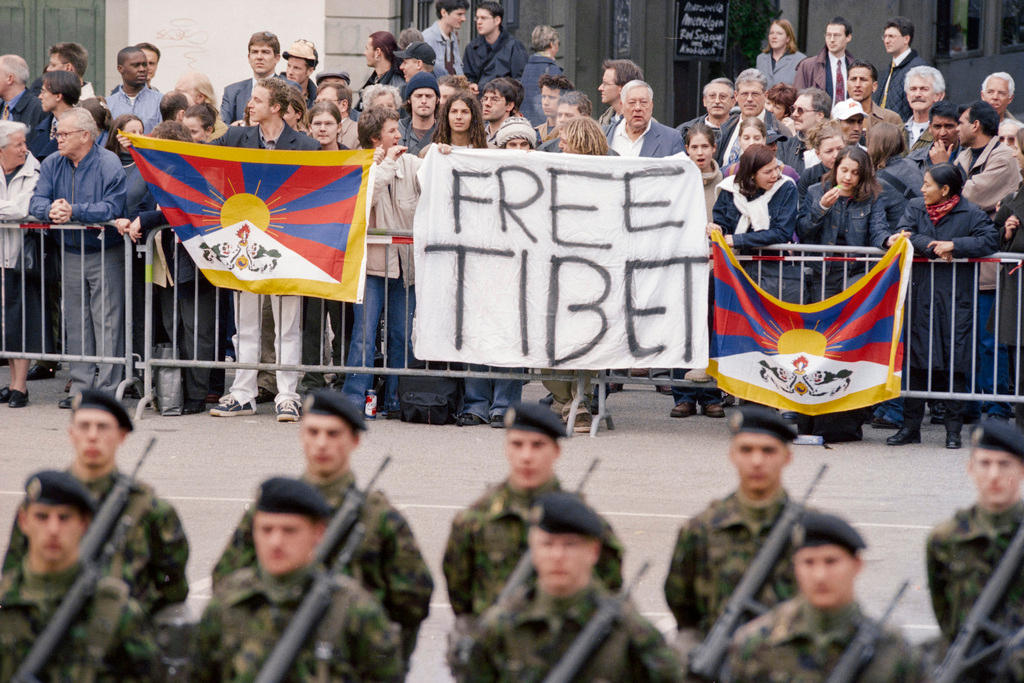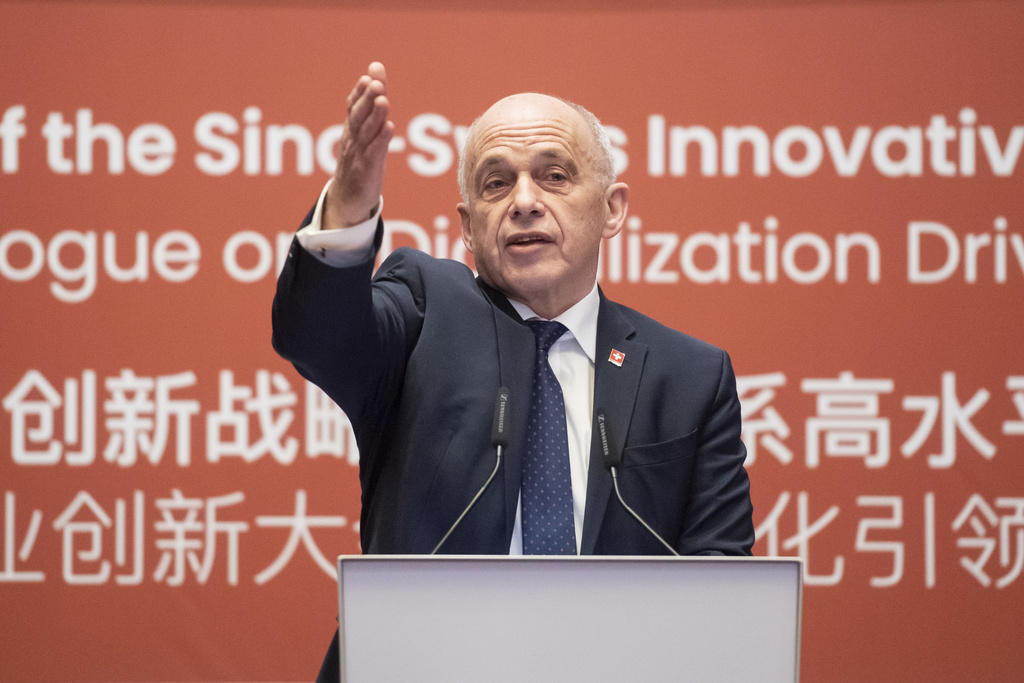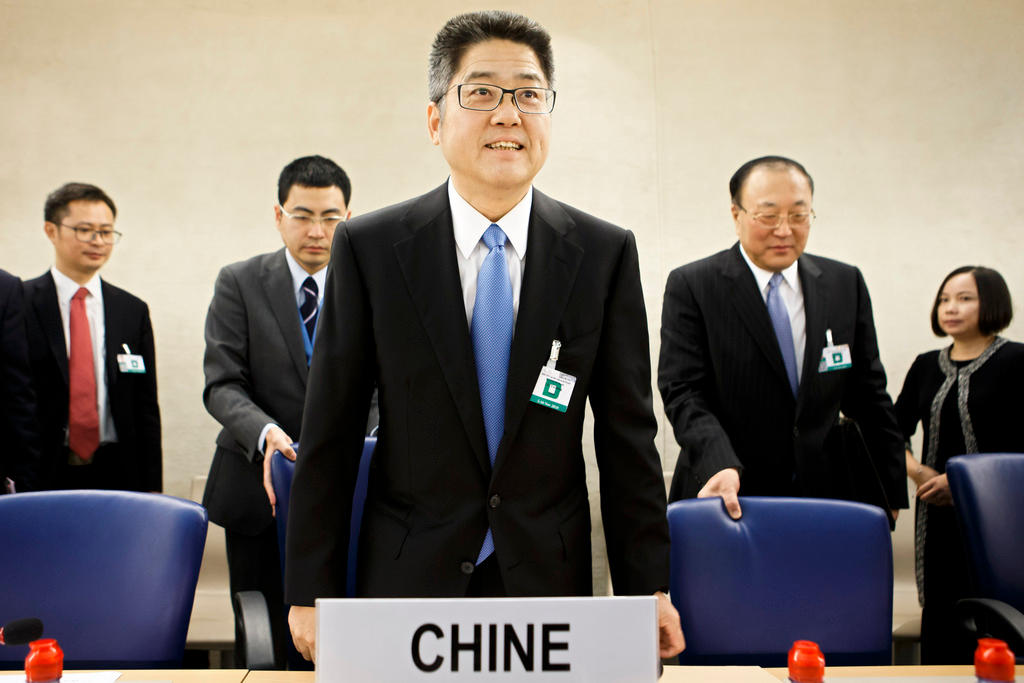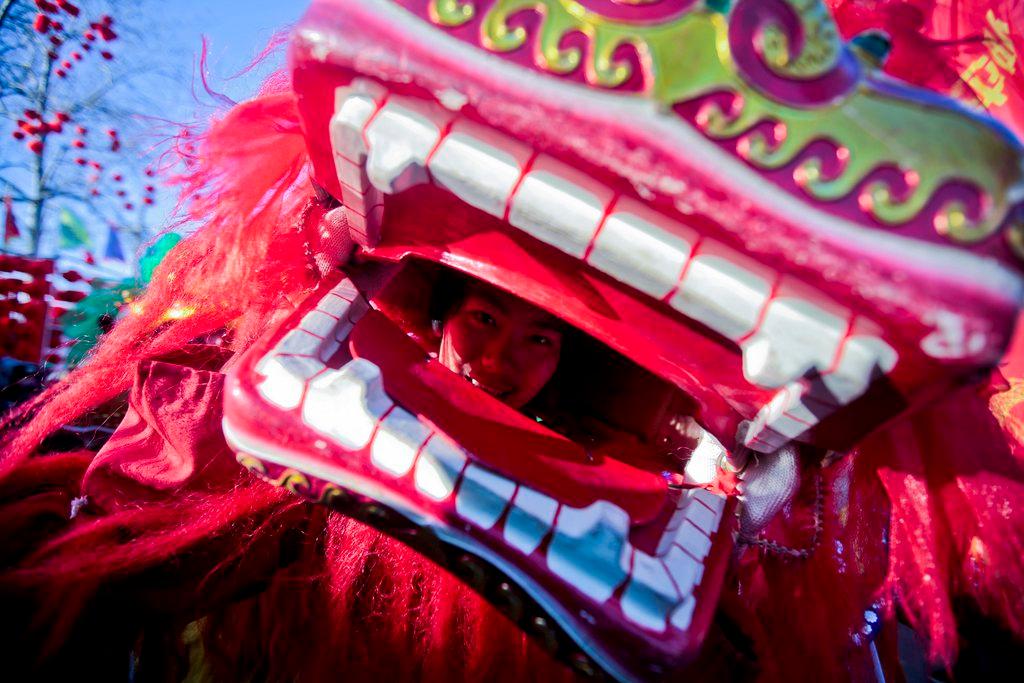How Switzerland reacted to Tiananmen Square
Thirty years ago, journalists from Switzerland’s public broadcaster were at Zurich international airport looking for people coming back from China. These Swiss tourists were bringing back the first eyewitness accounts of the political crackdown in Beijing and other Chinese cities on June 4, 1989.
We dug into our archives to find out how the Swiss public broadcaster covered these events. The video above shows tourists describing what they saw and experienced on that day. It also shows scenes from the crackdown found in the archives.
In the early hours, Chinese soldiers crushed widespread demonstrations which had for weeks been calling for new limits on the power of the governing Communist Party and for political liberalization similar to what was happening in Eastern Europe. But China took another path and to this day, 30 years on, the death toll of that fateful crackdown still remains unclear.
The tourists at the airport in Zurich described scenes of confrontations between protesters and soldiers. “All of a sudden, it was horrible,” said one. “The army came in groups. The students were throwing stones. On the first day, the soldiers didn’t shoot but on the second day, on Sunday, it started.”
One said that he had offered to help at hospitals but that he had been turned away, even though there were some ten thousand people injured. “They said that there was no problem and that they didn’t need any help,” he said.
Bilateral relations in question
The crackdown was a shock to many foreign journalists, diplomats, and investors. It led many governments, including the Swiss, to question their political and economic relationships with the country under Communist rule. For a brief moment, everything seemed in question, including the still small but growing trade between the two countries.
The incomplete records we found in our archives reflect the shock, uncertainty and the difficult calculations of Swiss decision makers at the time.
This was probably the first time that Switzerland publicly criticized Chinese internal politics as a violation of human rights, said Ariane Knüsel, a post-doctoral researcher of contemporary history at the University of Fribourg. The government publicly pleaded for leniency in the sentencing of protest leaders, Knüsel said.
Immediately after the crackdown, Bern imposed a ban on arms exports and froze a previously agreed arms shipment.
But officials were quick to say that they would not consider economic sanctions. Switzerland ended up benefiting from Beijing’s temporary isolation, Knüsel noted, because the small nation continued its working-level dialogue with Chinese officials in this moment of international isolation.
The uncertainty over the outcome of the crackdown was widespread in the immediate aftermath. Alfred Rüegg, a departmental head of the Swiss foreign ministry, did not conceal his concern over the chaotic situation in Beijing in a public interview two days after the crackdown. “The danger of a civil war-like situation, of military units fighting each other in Beijing and in the vicinity of the capital, cannot be excluded,” he told the Swiss state broadcaster at the time.
Asked whether Swiss companies would have to write off their investments in China, Uli Sigg, the then founding president of the Swiss-Chinese Chamber of Commerce and later ambassador to China, also told the broadcaster that it was too soon to say. “If relations were to be broken off, no party would be served,” Sigg was quoted as saying on June 6. “If the reformers come to power, which is the hope of business circles, I see a revival of trade relations.”
‘Anger and sadness’
Students at the University of Zurich were less careful with their words. “A government that deploys the army against its own people won’t last very long,” one, whose name wasn’t recorded in the archives, told the broadcaster. “I hope that (the protesters) don’t give up. I just don’t know what I can do here to help.”
“Anger, sadness, and powerlessness,” is how one Chinese-language student described his feelings. “Above all, I felt powerless because in Switzerland we also see that repression in certain areas is increasing more and more.”
In September 1989, the public broadcaster went to Beijing to report on how the economic situation in Beijing had changed for Swiss investors. The consensus among those interviewed was that the situation appeared bleak but was improving, at least economically.
“Regardless of the still uncertain political situation, the official Switzerland exchanges pleasantries with the Chinese and thus pretends that nothing has happened in the last four months,” a correspondent for Swiss television told his audience back home. “There are heaps of projects underway and the Chinese people are pressing for their needs to be met.”
A newly built Mövenpick hotel in Beijing was said not to have any guests in the three months following the crackdown. But the chain proceeded with the construction of another hotel near the capital’s airport. The hotel came to be popularly known as the Sino-Swiss Hotel.
Across Europe, the initial outrage quickly turned to indifference and a return to the wholehearted embrace of investments in China and trade with what is now the world’s second-largest economy.
In the year before the protest, only 1% of Swiss exports went to China. That has changed dramatically. Since 2010, the country has been Switzerland’s third-largest trading partnerExternal link after the United States and the European Union.
Earlier this year, the Swiss government ended a human rights training programme for Chinese cadres, the only one of its kind. The Federal Council was said to have droppedExternal link a reference to human rights in recent negotiations on the Swiss participation in Bejing’s One Belt One Road infrastructure initiative.
That Mövenpick hotel under construction in 1989 eventually opened a year later. It is still in operation but has long changed its name to reflect its current owner, a Chinese state-owned conglomerate.
How do you remember the events of June 4, 1989? Do you recognize yourself or someone you know in the video? You can reach Patrick at patrick.boehler (at) swissinfo.ch and follow him on Twitter @mrbaopanruiExternal link.




You can find an overview of ongoing debates with our journalists here. Please join us!
If you want to start a conversation about a topic raised in this article or want to report factual errors, email us at english@swissinfo.ch.